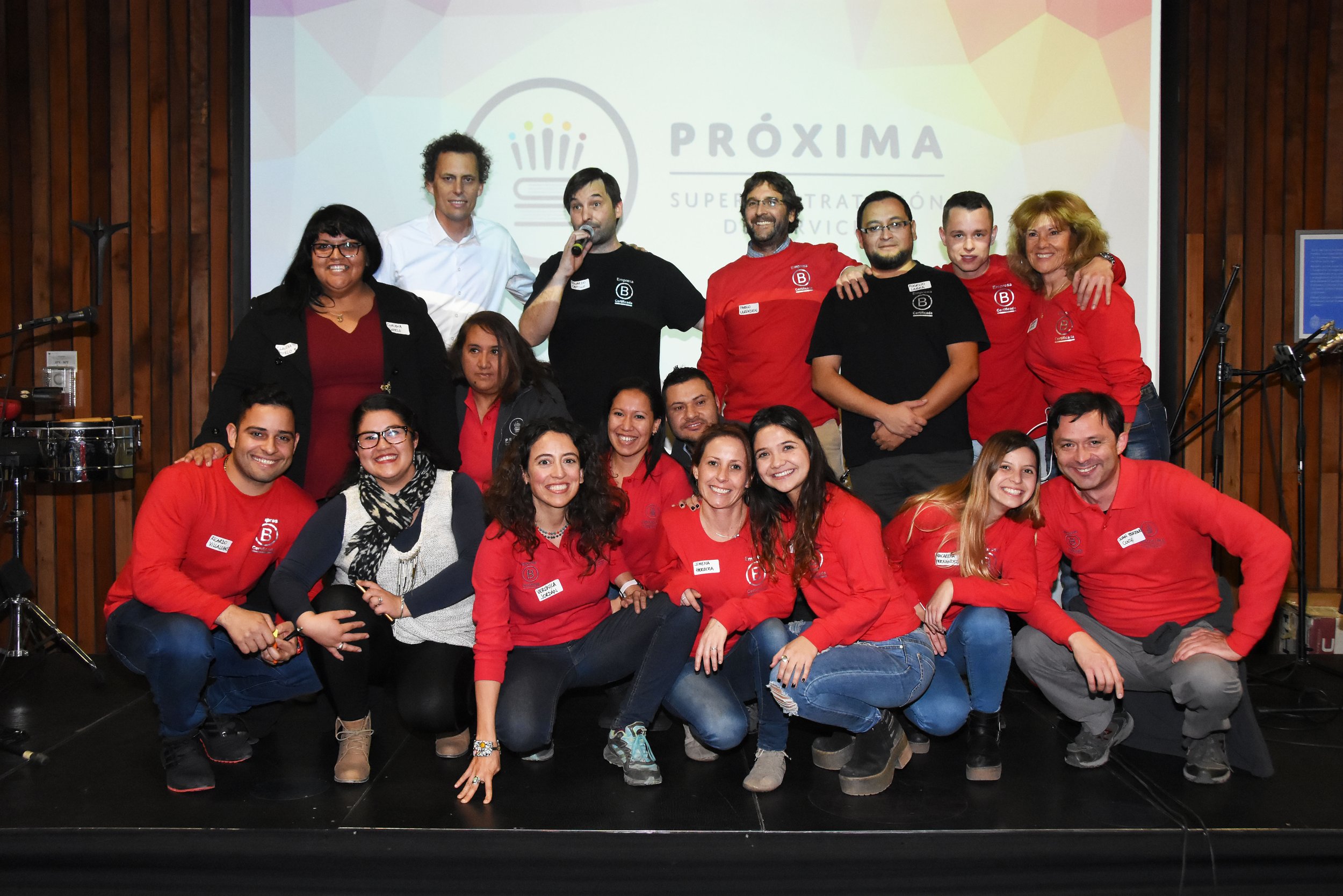In Chile, a large percentage of jobs in the labor market are informal or temporary and do not provide employment protection, social security benefits, or growth opportunities, limiting workers from obtaining the skills they need to advance their careers.
Improving job quality can foster productivity growth and increase workers’ well-being
In the face of structural labor market challenges, the founders of Próxima Servicios sought to create solutions that can reduce the inequality of opportunity rather than just the inequality of income.
“Part of the problem is that workers can’t access quality careers that have growth opportunities; if you have worked 15 years in a multinational company in cleaning, that experience will only lead to the next job in cleaning” , explained Eduardo Castillo, CEO of Próxima Servicios.
These inequities are contingent upon socioeconomic status, “Chile’s labor market is not open to everyone; your career, the jobs that you can acquire are all associated with your education level, which depends on your place of birth in society,” shared Eduardo.
Overcoming labor market challenges will require better-targeted career training and labor intermediation
Claudio Seebach (left) and Eduardo Castillo (right)
With this in mind, Eduardo and his co-founders, Claudio Seebach, Juan Jose Ledermann, and Matias Fernande co-created Próxima Servicios in 2015. The Chilean enterprise supports workers in the outsourcing industry which has high employee turnover rates. Most outsourcing companies offer short-term contracts with no benefits or career development support, allowing them to terminate employees in the first year to avoid paying additional compensation required by the Chilean labor law.
Próxima Servicios’ entrepreneurial solution to reducing the inequality of opportunity in the labor market
The first obstacle that Próxima Servicios faced was ensuring career security for their workers. Próxima Servicios wanted to make sure its employees had ownership and felt valued as important members of the company. In addition to providing essential social benefits such as health insurance, Próxima Servicios gave 10% of total company ownership to its employees at no cost, offering each worker the chance to become partners of the company three months after they begin working.
Second, Próxima Servicios sought ways to equip its employees with the tools and training to attain career growth and mobility. Different from other outsourcing companies, Próxima Servicios organized training programs that teach employees valuable and transferable skills. Currently, the Chilean enterprise is creating a career development program to expand career placement options for its employees, helping them to acquire new skills applicable across different industries such as waste management, logistics, security, cleaning, gardening, etc.
The last challenge that Próxima Servicios encountered was balancing sustainability with cost, “we are not the cheapest service on the market. When you prioritize impact instead of profit in your everyday decision-making, you can really drive change and profit comes like a reward,” shared Eduardo. Próxima Servicios’ impact-first business strategy has attracted corporate clients that are also passionate about contributing to a circular economy and recognize the social and business benefits of promoting the sustainability, stability, and professional development of its contracted workers.
“We are very selective in choosing the clients we work with because we think of our clients as partners of social impact,” added Eduardo.
Próxima Servicios has been B Corp certified since 2017 and has received Best for the World certification for five consecutive years. The company has also had net-zero greenhouse emissions since 2018. 90% of its workers are migrants, women, ethnic minorities, and people who struggle with job security and basic workplace human rights. The enterprise is currently working with a social worker who supports its employees to apply for state benefits and psychological counseling.
“Profit is a consequence. If you work for profit in the usual way you will struggle with the same problems every time. We have put profit behind, as an outcome of the work that we are doing, and we have seen that the returns are even better.”- Eduardo Castillo, CEO of Próxima Servicios







